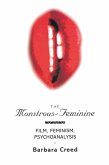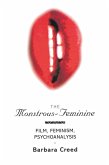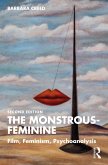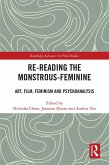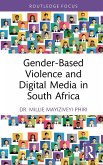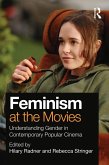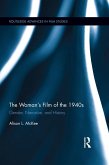Dieser Download kann aus rechtlichen Gründen nur mit Rechnungsadresse in A, B, BG, CY, CZ, D, DK, EW, E, FIN, F, GR, HR, H, IRL, I, LT, L, LR, M, NL, PL, P, R, S, SLO, SK ausgeliefert werden.
Hinweis: Dieser Artikel kann nur an eine deutsche Lieferadresse ausgeliefert werden.
Aaron Kramer, Professor, and Director of the SFSU School of Cinema, San Francisco State University
"Creed's The Monstrous-Feminine radically changed the logic of abjection and how it is linked with women. In her profoundly original analysis of horror films, Creed upended a concept emanating from psychoanalysis, traditionally perceived as scaffolding supporting patriarchy, to demonstrate how women could be seen as the agents of abjection rather than as its passive victims. In this new edition Creed expands and updates the filmography to include horror films created by women to augment the ways in which the monstrous-feminine functions deliciously as patriarchy's retribution."
Sneja Gunew, Professor Emerita (English/Social Justice Institute), University of British Columbia, Canada
"In this new and expanded edition of the classic The Monstrous-Feminine: Film, Feminism, Psychoanalysis, Barbara Creed adds a crucial monstrous-feminine register: the nonhuman. With the nonhuman, female horror touches the profound source of abjection. Twenty-first Century feminist horror, Creed shows, introduces a series of startling tropes: the metamorphizing adolescent girl, the female zombie, and the creatrix. Together these female monsters question the stability and uniqueness of the human. In an age at which anthropogenic and patriarchal harms threaten the very survival of the planet, embracing the nonhuman becomes a remedial, even liberating gesture."
Anat Pick, Reader in Film, Queen Mary University of London
"Thirty years after the publication of Barbara Creed's classic text, which revolutionised approaches to the analysis of women in horror films, the monstrous- feminine looms large. This updated edition, which includes entirely new chapters, interrogates the concept in contemporary contexts through a range of diverse films directed by women, and through the exploration of recent progressive social movements. What emerges are newer "faces", more nuanced forms of horror that speak to a global audience and that revitalise the force of the abject in more expanded ways that continue to revolt against patriarchal order."
Rina Arya, Professor of Visual Culture and Theory, University of Huddersfield



